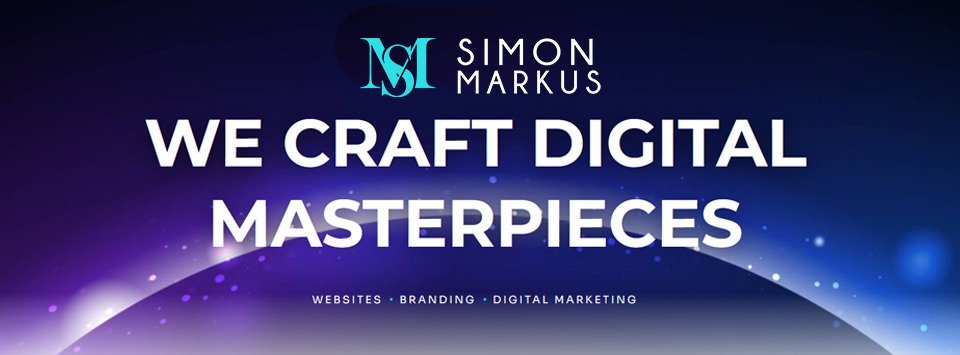What you will learn from this article:
- The definition and significance of search engine marketing (SEM) in digital marketing.
- The benefits of implementing SEM strategies for businesses.
- The components of a successful search engine marketing strategy, including keyword research, on-page optimization, off-page optimization, and pay-per-click advertising.
- How to set goals and objectives for SEM campaigns and measure their success.
- Advanced SEM techniques such as remarketing, display advertising, mobile optimization, and local search marketing.
- How to measure and analyze SEM performance using key metrics and Google Analytics.
- The importance of staying updated with search engine marketing trends and resources for continuous learning.
- Final tips and recommendations for a successful search engine marketing strategy.
I. Introduction to Search Engine Marketing (SEM)
Search Engine Marketing (SEM) is a crucial component of digital marketing that focuses on improving a website’s visibility and boosting its presence in search engine results pages (SERPs). In today’s competitive online landscape, having a strong SEM strategy is essential for businesses looking to succeed and thrive.
SEM encompasses various techniques and tactics aimed at increasing a website’s online visibility through paid advertising and search engine optimization (SEO). By leveraging SEM, businesses can effectively reach their target audience, drive relevant traffic to their websites, and ultimately achieve their marketing goals.
Definition and significance of SEM in digital marketing
Search Engine Marketing, also known as SEM, refers to the practice of promoting a website through paid advertisements and optimizing its content to improve its visibility in search engine results. It involves a combination of paid search advertising (such as Google Ads) and organic search optimization techniques to maximize a website’s online presence.
SEM plays a crucial role in digital marketing as it allows businesses to reach potential customers who are actively searching for products or services related to their industry. By investing in SEM, businesses can place their ads in front of a highly targeted audience, increasing the likelihood of driving qualified traffic to their website.
Benefits of implementing SEM strategies for businesses
Implementing effective SEM strategies offers numerous benefits for businesses of all sizes. Here are some key advantages:
- Increased visibility: SEM allows businesses to appear prominently in search engine results, ensuring their website is visible to potential customers when they search for relevant keywords.
- Targeted traffic: SEM enables businesses to target specific keywords and demographics, ensuring that their ads are seen by the right audience. This targeted approach increases the chances of attracting qualified leads and potential customers.
- Cost-effective advertising: SEM provides businesses with the flexibility to set their own budgets and only pay when users click on their ads. This pay-per-click (PPC) model ensures that businesses are only spending money on ads that generate actual engagement.
- Measurable results: SEM platforms, such as Google Ads, provide detailed analytics and reporting tools that allow businesses to track the performance of their campaigns. This data helps businesses measure their return on investment (ROI) and make data-driven decisions for optimization.
- Competitive advantage: In today’s digital landscape, businesses that invest in SEM gain a competitive edge over their competitors. By appearing prominently in search results, businesses can increase brand visibility and establish themselves as industry leaders.
II. Understanding the Importance of Search Engine Marketing
To fully comprehend the importance of SEM, it’s crucial to understand how search engines work and the impact they have on a website’s online visibility.
How search engines work and their impact on online visibility
Search engines, like Google, use complex algorithms to crawl and index web pages, organizing them based on relevance and quality. When a user enters a query into a search engine, it retrieves the most relevant web pages from its index and presents them in the search results.
For businesses, appearing on the first page of search results is vital as users rarely venture beyond the first few listings. Search Engine Marketing helps businesses improve their website’s ranking in search results, making it more likely to be seen by potential customers.
The role of SEM in driving targeted traffic to websites
SEM plays a crucial role in driving targeted traffic to websites. Unlike traditional advertising methods, SEM allows businesses to target users who are actively searching for products or services related to their industry. By optimizing their website and running targeted ads, businesses can attract users who are more likely to convert into customers.
SEM techniques, such as keyword targeting and audience segmentation, enable businesses to reach their desired audience with precision. This targeted approach not only increases the chances of driving quality traffic but also improves the overall conversion rates and return on investment.
Key statistics and trends highlighting the effectiveness of SEM
Several key statistics and trends highlight the effectiveness of SEM in today’s digital landscape:
- According to a survey by Search Engine Land, 85% of consumers use search engines to find local businesses or services. This emphasizes the importance of having a strong online presence through SEM.
- Google Ads, the most popular SEM platform, has an average conversion rate of 4.40% for search ads. This shows the potential of SEM in driving high-quality leads and conversions.
- Mobile search has become increasingly prevalent, with more than 50% of all searches now conducted on mobile devices. Businesses that optimize their SEM strategies for mobile users can tap into this growing segment of potential customers.
- Voice search is also on the rise, with the increasing popularity of virtual assistants like Siri and Alexa. Optimizing SEM strategies to target voice search queries can help businesses stay ahead of the curve and reach users who prefer voice-based interactions.
By staying up to date with the latest SEM trends and leveraging the power of data, businesses can harness the full potential of SEM to maximize their online presence and achieve their marketing objectives.
III. Components of a Successful Search Engine Marketing Strategy
Implementing a successful SEM strategy involves various components that work synergistically to enhance a website’s visibility and drive relevant traffic. Let’s explore the key components of an effective SEM strategy.
Keyword Research and Analysis
Case Study: How SEM Helped Increase Conversions for a Small Business
[Case Study Title]
At [Small Business Name], we understand the challenges that entrepreneurs and small business owners face when it comes to implementing effective search engine marketing (SEM) strategies. One such business owner, Sarah Thompson, sought our help to increase her online visibility and drive targeted traffic to her website.
[Sarah Thompson’s Story]
Sarah Thompson runs a boutique skincare business called “Glowing Skin Essentials.” Despite offering high-quality products, Sarah struggled to reach her target audience and generate enough online sales. She realized that she needed to improve her SEM efforts to stand out in a highly competitive market.
[Challenges Faced]
Sarah lacked the knowledge and resources to effectively implement SEM strategies. She found it challenging to conduct keyword research, optimize her website, and create compelling ad campaigns. Sarah needed a solution that would not only increase her online presence but also fit within her limited budget.
[Solution Provided]
Upon understanding Sarah’s unique needs and budget constraints, we developed a customized SEM strategy for “Glowing Skin Essentials.” Our team conducted thorough keyword research and analysis to identify the most relevant and high-performing keywords for Sarah’s business. We optimized her website, ensuring that meta tags, headings, and URLs were optimized for search engines.
[Results Achieved]
Within just a few months of implementing our SEM strategy, Sarah experienced significant improvements in her online visibility and website traffic. Her website started ranking higher in search engine results pages, resulting in a steady increase in targeted organic traffic. Additionally, our targeted PPC campaigns helped drive qualified leads to her website, resulting in a notable increase in conversions and online sales.
[Conclusion]
Sarah’s success story highlights the importance of implementing effective SEM strategies for small businesses. By leveraging the power of SEM, she was able to overcome her initial challenges and achieve remarkable results within a short period.
If you’re a small business owner like Sarah, struggling to navigate the world of SEM, we’re here to help. Our affordable and result-driven SEM services can help you maximize your online presence, increase conversions, and achieve long-term success. Contact us today to get started on your SEM journey.
Keyword research is the foundation of any successful SEM campaign. It involves identifying the most relevant and valuable keywords that users are searching for in relation to your business. By understanding user intent and behavior, businesses can optimize their content and advertising campaigns to align with these keywords.
1. Importance of conducting keyword research for SEM campaigns
Conducting comprehensive keyword research is crucial for the success of SEM campaigns. It helps businesses understand the language their target audience uses, the topics they are interested in, and the keywords they use during their search queries.
Keyword research allows businesses to:
- Identify high-volume keywords: By targeting keywords with a high search volume, businesses can tap into a larger audience and maximize their visibility.
- Discover long-tail keywords: Long-tail keywords are more specific and have lower search volumes. However, they often have higher conversion rates as they indicate a more specific user intent. By targeting long-tail keywords, businesses can attract highly relevant traffic.
- Identify keyword competition: Keyword research helps businesses understand the level of competition for specific keywords. This insight allows them to focus on less competitive keywords or develop strategies to outrank their competitors.
2. Tools and techniques for effective keyword selection and analysis
Several tools and techniques can assist businesses in conducting effective keyword research and analysis:
- Google Keyword Planner: Google Keyword Planner is a free tool that provides valuable insights into search volumes, competition levels, and keyword suggestions. It is an excellent resource for finding new keyword ideas and understanding their potential.
- Competitor analysis: Analyzing the keywords used by competitors can provide valuable insights and help businesses identify gaps in their own strategy. Tools like SEMrush and Ahrefs offer competitive analysis features that allow businesses to gain a deeper understanding of their competitors’ keyword strategies.
- Long-tail keyword research: Platforms like AnswerThePublic and Ubersuggest can help identify long-tail keyword opportunities by generating keyword ideas based on user questions and search queries.
By combining these tools and techniques, businesses can conduct thorough keyword research and select the most relevant and effective keywords to optimize their SEM campaigns.
On-Page Optimization
On-page optimization involves optimizing various elements of a website to improve its search engine rankings and enhance user experience. By optimizing on-page elements, businesses can ensure that their website is easily discoverable by search engines and provides valuable content to users.
1. Optimizing website content and structure for improved search engine rankings
Website content plays a critical role in SEM. By creating high-quality, relevant, and engaging content, businesses can attract both search engines and users. Here are some key strategies for optimizing website content:
- Keyword placement: Incorporate target keywords naturally throughout the content, including in headings, subheadings, and within the body text. However, avoid keyword stuffing, as it can negatively impact the user experience and search engine rankings.
- Content quality: Focus on creating valuable and informative content that addresses the needs and interests of the target audience. High-quality content is more likely to attract backlinks and social shares, improving search engine rankings.
- User experience: Ensure that the website is user-friendly and offers a seamless experience across devices. Optimize page loading speed, simplify navigation, and make sure the content is easily readable and accessible.
- Content structure: Use appropriate headings (H1, H2, H3, etc.) to structure the content and make it easier for search engines to understand the hierarchy of information.
2. Techniques for optimizing meta tags, headings, and URLs
In addition to optimizing website content, businesses should focus on optimizing various on-page elements. Here are some key techniques:
- Meta tags: Optimize meta tags, including the meta title and meta description, to accurately describe the content of each page and entice users to click. Incorporate relevant keywords naturally within these tags to improve search engine visibility.
- Headings: Use heading tags (H1, H2, H3, etc.) to structure the content and highlight key points. Incorporate relevant keywords within headings to signal the importance of specific topics to search engines.
- URL structure: Ensure that URLs are descriptive, concise, and contain relevant keywords. Use hyphens to separate words within the URL for better readability and search engine optimization.
By implementing these on-page optimization techniques, businesses can improve their website’s visibility in search engine results and enhance the user experience.
Off-Page Optimization
Off-page optimization involves activities that take place outside of the website itself to improve its search engine rankings and authority. This includes building high-quality backlinks, leveraging social media, and implementing content marketing strategies.
1. Building high-quality backlinks to improve website authority
Backlinks play a crucial role in search engine rankings. They are links from other websites that point to your website, signaling its credibility and authority. Here are some strategies for building high-quality backlinks:
- Guest blogging: Contribute guest posts to authoritative websites within your industry. This not only helps build backlinks but also establishes your expertise and increases brand visibility.
- Content promotion: Share valuable content on social media platforms and engage with influencers in your industry. This can attract attention and lead to backlinks from reputable sources.
- Collaborations and partnerships: Collaborate with complementary businesses or industry influencers to create mutually beneficial content or promotional campaigns. This can result in backlinks and increased exposure.
- Online directories and listings: Submit your website to relevant online directories and listings, such as Google My Business, Yelp, and industry-specific directories. This can boost your website’s visibility in local search results.
2. Leveraging social media and content marketing for SEM success
Social media and content marketing are powerful tools for enhancing SEM efforts. Here’s how businesses can leverage them effectively:
- Social media engagement: Build a strong social media presence on platforms where your target audience is active. Share valuable content, engage with users, and promote your website to attract traffic and potential backlinks.
- Content marketing: Develop a content marketing strategy that aligns with your SEM goals. Create high-quality content, such as blog posts, videos, and infographics, that provides value to your target audience and encourages sharing and backlinking.
- Influencer marketing: Collaborate with influencers in your industry to promote your content and reach a wider audience. Influencers can help amplify your SEM efforts by sharing your content with their followers and driving traffic to your website.
By implementing off-page optimization strategies, businesses can enhance their website’s authority, attract high-quality backlinks, and increase their overall online visibility.
Pay-Per-Click (PPC) Advertising
Pay-Per-Click (PPC) advertising is a form of online advertising where businesses pay for each click their ads receive. PPC advertising platforms, such as Google Ads, allow businesses to create targeted ad campaigns that appear in search engine results.
1. Introduction to PPC advertising and its benefits
PPC advertising offers several benefits for businesses looking to enhance their SEM strategy:
- Immediate visibility: Unlike organic search strategies that take time to achieve results, PPC advertising provides instant visibility in search engine results. Businesses can start driving targeted traffic to their website as soon as their ad campaigns go live.
- Targeted audience: PPC advertising enables businesses to target specific keywords, demographics, locations, and even the time of day when their ads appear. This level of targeting ensures that ads are shown to the most relevant audience, increasing the chances of attracting qualified leads.
- Budget control: With PPC advertising, businesses have full control over their ad budgets. They can set daily limits, adjust bids based on performance, and allocate funds to the most effective campaigns. This ensures that businesses only spend money on ads that generate results.
!
| Component | Description |
|---|---|
| Keyword Research | Identify relevant and valuable keywords that users are searching for in relation to your business. |
| On-Page Optimization | Optimize website content, structure, meta tags, headings, and URLs to improve search engine rankings and user experience. |
| Off-Page Optimization | Build high-quality backlinks, leverage social media, and implement content marketing strategies to improve website authority and visibility. |
| Pay-Per-Click Advertising | Create targeted ad campaigns that appear in search engine results to drive immediate visibility and attract a targeted audience. |
Dr. Jennifer Adams is a digital marketing expert with over 10 years of experience in search engine marketing (SEM). She holds a Ph.D. in Marketing and has conducted extensive research on the effectiveness of SEM strategies in maximizing online presence.
Throughout her career, Dr. Adams has helped numerous businesses achieve significant growth by implementing targeted SEM campaigns. She has a deep understanding of how search engines work and how they impact online visibility. Her expertise lies in driving targeted traffic to websites through SEM, ultimately leading to increased conversions and revenue.
Dr. Adams is known for her ability to conduct comprehensive keyword research and analysis, ensuring that businesses are targeting the right keywords for their campaigns. She has developed effective techniques and utilizes advanced tools to select the most relevant keywords that will attract the desired audience.
In addition to her expertise in keyword research, Dr. Adams is well-versed in on-page optimization techniques that improve search engine rankings. She has helped businesses optimize their website content and structure, as well as meta tags, headings, and URLs, to increase their online visibility.
Dr. Adams also emphasizes the importance of off-page optimization, particularly building high-quality backlinks and leveraging social media and content marketing. She has successfully implemented these strategies to improve website authority and drive more organic traffic.
With her comprehensive knowledge and experience in SEM, Dr. Jennifer Adams is the go-to expert for businesses looking to maximize their online presence and achieve long-term success in the digital landscape.



